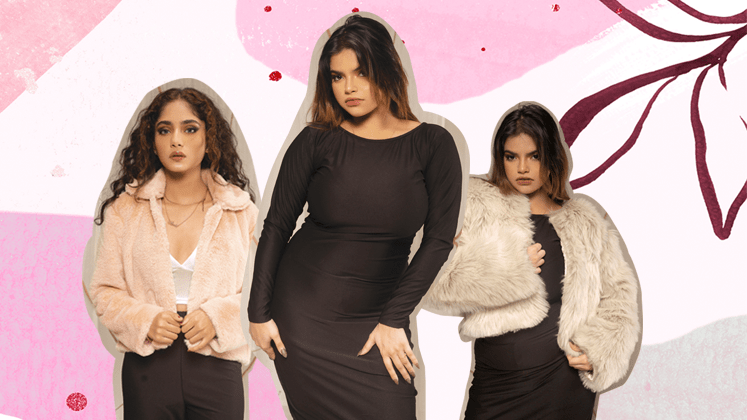One of Bangladesh’s first online Slow Fashion clothing brand, ROZEN was founded by Saiyara Roja Islam in January of 2019. With a goal to make available to customers, products and styles that are not easily accessible in Bangladesh, ROZEN is re-establishing the norms of fashion, all the while keeping the entire process ethical and the products sustainable.
“The reason these types of products are not accessible is because these products go against social norms in our society. This led us to our mission, to help customers fight social taboos with our products,” Saiyara told Apparel Resources (AR) in an exclusive interview.
THE ONSET
As per Saiyara, “The idea of starting my own brand wasn’t long planned. I used to work as a professional vocal artist in Dhaka from when I was 14 years old till I was about 18.”
After her IGCSE, Saiyara got through the scholarship to a college in Malaysia.
The idea of moving to Kuala Lumpur and being fully dependent on her mother’s money didn’t sit right with her and this is what led Saiyara to explore alternate sources of income that would help her support herself through her stay in Malaysia.
“When I was 8 years old, my mother bought me a little electrical sewing machine. I was not allowed to use it unsupervised but as soon as it arrived, I made a skirt out of one of my mother’s scarfs while she was preparing our dinner upstairs in the kitchen,” Saiyara recalled adding, “She came back to find me wearing a skirt which she had no idea where it came from.”
Saiyara spent her childhood in England and her family moved back to Bangladesh when she was all of but 10 years old. Living in Dhaka, she couldn’t find anything worthwhile at the stores that would appeal to her exposed sense of style.
“I bought my clothes mainly from international websites which turn out to be extremely costly as they incur up to 71 per cent of tax on clothing products at customs,” Saiyara pointed out.
Keeping the same in mind, Saiyara thought of other people who out there would also be looking for similar types of clothing but are limited to the options available in their country. “So creating clothes seemed like a good idea for me – something I was already good at and something that was in demand in the market,” Saiyara highlighted, adding, “Although the fashion industry wasn’t what I grew up dreaming about, I absolutely love my job and will continue to grow the business.”
And thus, ROZEN was born.
PRODUCT ASSORTMENT AND PRICING
At ROZEN, one can be certain to find all kinds of clothing – from casualwear to formalwear, to partywear and even sleepwear. Ranging from shirts, to tops, to dresses, to skirts, pants, coats, blazers, blazer dresses and more, ROZEN’S products are priced between 450 BDT and 3,950 BDT.
Rozen promises that the product you purchase will be a perfect fit. The brand does not believe in mass production of products and all the raw materials of each collection are kept in inventory.
“We try to price our products at the minimum possible to make it as affordable as we can but at the same time, we also keep in mind the quality and ethical factors involved in production,” Saiyara explained.
USP OF THE LABEL
The Mission Statement of the label reads as follows: ‘To help customers walk through a better society, with better clothes on’. ROZEN promises that the product you purchase will be a perfect fit. The brand does not believe in mass production of products and all the raw materials of each collection are kept in inventory. Furthermore, the label promotes inclusive sizing and fit, and each product is made as per customer measurements, which are taken individually post each order being placed.
“We also have the option of adding sleeves to sleeveless designs and increasing length in shorter designs, because we understand that each individual have their own beliefs when it comes to dressing themselves,” Saiyara stated adding, “We try to make sure that no one is left out. This helps us stand out because in Bangladesh, which is still predominantly a South Asian Muslim country, quality western clothing is already scarce, so the size range available for them is narrow.”
ROZEN’S products are designed with fabrics that are not commonly used by other brands in the country. Following a minimal aesthetic, the label shies away from using major detailing or embroidery. Commenting on the same, Saiyara said, “We focus on making the products convenient for everyday life and durable, keeping in mind the typical use of the item and also several different lifestyles of our customers.”
The label usually works with fabrics such as corduroy, crepe silk, satin, etc.
“We also worked with faux fur and faux suede last winter. If we’re correct on research, we are the first Bangladeshi brand to have launched faux fur clothing products in Bangladesh,” Saiyara highlighted.
MANUFACTURING AND SOURCING
Both designed and ethically manufactured in Bangladesh at ROZEN’S own workshop based in Dhaka, all of their materials are outsourced.
“Our production team is formed of small time struggling local tailors from around the city. We found them and trained them, which was quite a task, as they were not used to making the kind of designs ROZEN stands for,” Saiyara corroborated.
Today, the team consists of 12 individuals.
THE SUSTAINABLE ANGLE
“It is important to us that we do not harm our environment or society in any way while trying to do the exact opposite,” Saiyara explained.
The delivery company ROZEN works with, ‘E-courier’, is an eco-friendly company and the current task the label is undertaking is to shift its packaging to 100 per cent biodegradable materials. This is an expensive goal for small businesses like theirs, but Saiyara is hopeful to achieve it soon.
Furthermore, the label outsources its fabrics from small time fabrics sellers who collect unwanted fabrics from big factories located in the country.
“I do not think that the majority of our population is aware of the importance of sustainability in fashion. We try our best to educate our customers by using our social media platform to share information and statistics,” Saiyara highlighted.
Releasing two collections a year, ROZEN taps the Spring/Summer/Autumn and Winter season, wherein yearly collections are not restocked by the label.
The delivery company ROZEN works with, ‘E-courier’, is an eco- friendly company and the current task the label is undertaking is to shift its packaging to 100 per cent biodegradable materials.
For example, their 2020 winter collection stocked out around mid-January 2021, and will not be restocked. Other than these collections, the label also releases a couple of limited edition designs throughout the year.
IMPACT OF COVID-19
COVID-19 had a negative impact on all industries as much as it did on the fashion industry. ROZEN’s operations were closed for 4 months in 2020 and after re-starting operations, the label struggled for several months.
“We have still not fully recovered from the damages that COVID-19 caused. I can certainly see a lot of people turning to slow and sustainable fashion but I feel that there’s a long way to go. That being said, sustainable fashion will certainly be very popular in the years to come,” Saiyara concluded.
STOCKISTS AND EXPANSION PLANS
ROZEN’S products are available for purchase via their Instagram & Facebook pages. The label’s website is currently being updated.
The label reveals its future goal to be completely environment-friendly.
Commenting on the same, Saiyara said, “We are currently working on shifting our packaging to biodegradable materials only. We’re not sure by when this will be possible as this is an expensive goal for small businesses.”
The label is also working on being able to ship to every country and to improve its team and products as it goes along.


















